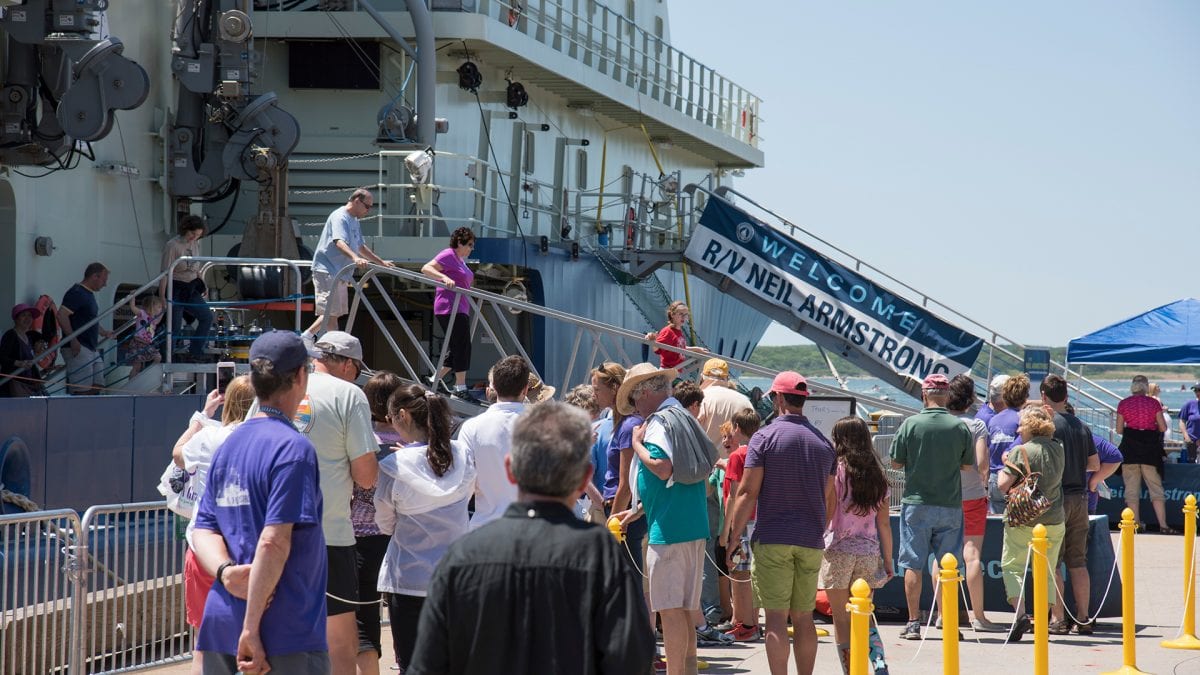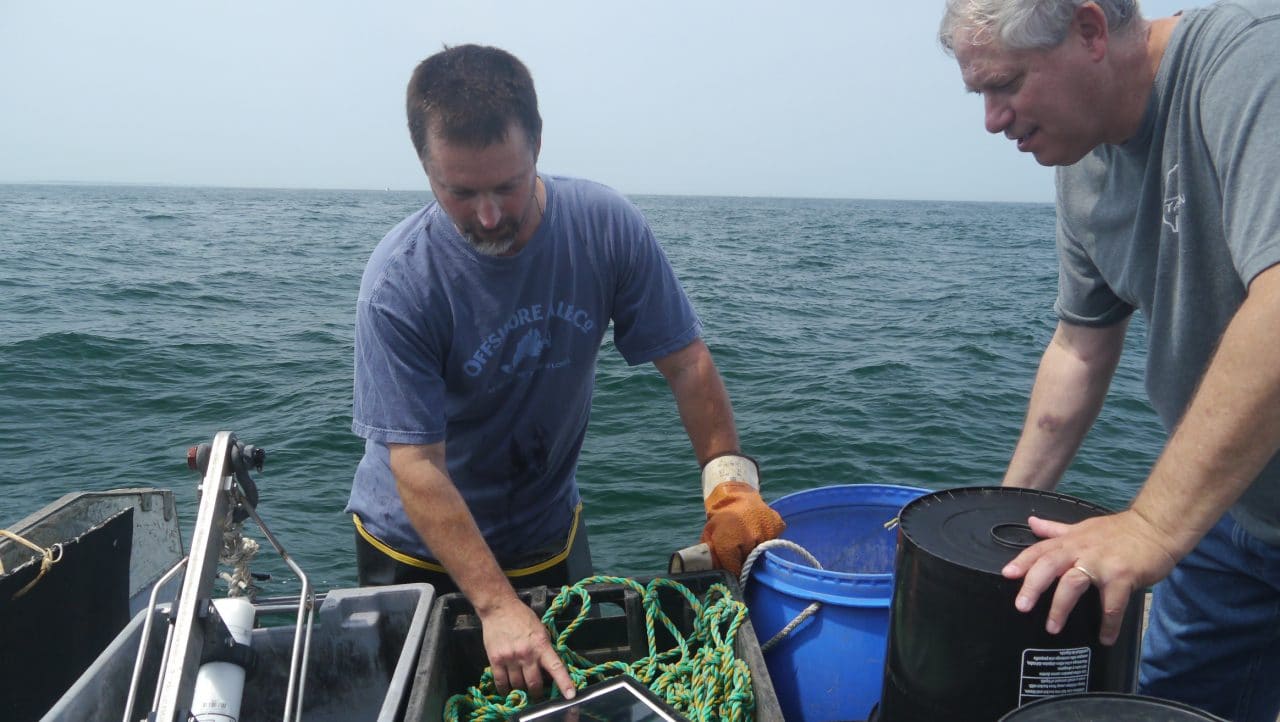WHOI’s economic impacts are far-reaching
 Woods Hole Oceanographic Institution continues to be a key economic growth driver in Massachusetts, bringing in $200 million federal dollars annually to the state and spurring the creation of nearly 4,000 jobs. (Photo by Thomas N. Kleindinst, © Woods Hole Oceanographic Institution)
Woods Hole Oceanographic Institution continues to be a key economic growth driver in Massachusetts, bringing in $200 million federal dollars annually to the state and spurring the creation of nearly 4,000 jobs. (Photo by Thomas N. Kleindinst, © Woods Hole Oceanographic Institution) December 18, 2019
The economic value of the Woods Hole Oceanographic Institution (WHOI) extends far beyond the footprint of its two campuses in Woods Hole, Massachusetts, according to a new study by the University of Massachusetts Donahue Institute.
“We’ve known for a long time that WHOI plays a key role—both directly and indirectly—in promoting the health and vitality of the local economy,” says WHOI President and Director Mark Abbott. “Now we see clear evidence that the Commonwealth, the Northeast, and even some national sectors rely on the knowledge and innovation that we generate.”
WHOI leadership helps ensure that ocean-related issues remain at the forefront of national discussions and that enhanced understanding of the ocean contributes to national defense. Globally, WHOI maintains roughly 200 partnerships with institutions in 75 countries. WHOI’s researchers have collaborated with 8,300 of their colleagues in 75 different countries and hundreds of different organizations over the past 4 years. At the state level, WHOI’s leadership in marine robotics has helped put the Commonwealth at the forefront of the burgeoning robotics industry nationally and internationally.
“We are part of a proud seagoing tradition in our region that goes back hundreds of years,” says David Scully, chairman of the Board of Trustees for WHOI. “This has created a broad base of talent and technology and made our region the global center of excellence for ocean science and exploration. We are the Silicon Valley of the ocean.”
WHOI was founded in 1930 as the first independent non-profit ocean research and education organization. By the 1960s, WHOI established itself as a leader in deep-ocean technology development, including the human-occupied submersible Alvin, which made its first dive in 1964 and rose to popular prominence when researchers used it to investigate the wreck of Titanic in the North Atlantic and to explore newly discovered hydrothermal vent ecosystems in the Pacific.
Major findings of the study:
- WHOI brings in $200 million federal dollars annually to Massachusetts.
- WHOI leads the state in National Science Foundation funding and is the 5th largest recipient of NSF funding nationally.
- WHOI’s operations translates to 3,898 jobs, $186.5 million in wages, $333.7 million value added to Gross Domestic Product, and $603.8 million in business revenue.
- The Blue Tech Economy contributes $2.6 billion in earnings and supports nearly 25,000 ocean-related jobs in Massachusetts, four percent of which are with WHOI.
- Locally, WHOI is the second largest employer on Cape Cod (after Cape Cod Healthcare), and supports the region in coastal planning, resource management, and habitat protection.
“The value of Woods Hole Oceanographic Institution in the development of the global blue economy cannot be overstated,” says Congressman William Keating (D-Mass.). “The groundbreaking work undertaken at WHOI has built the institution’s reputation as the preeminent marine science institute in the United States. This reputation and the desire of countless researchers, business people, and innovators to operate in proximity to the institute has long since cemented southeastern Massachusetts as a global leader in the marine research sector. WHOI is central to further developing the blue economy in our region, and this study confirms what we have all known for many years about the importance of this vital institution.”
More recently, WHOI-led expeditions have helped locate the wreckage of Air France flight 447, identified the location of the voyage data recorder of the sunken cargo ship El Faro, and provided the technology and expertise to accurately measure the flow of oil into the ocean from Deepwater Horizon and to assess the ecological impacts of the oil on open-ocean, seafloor, and coastal habitats.
Today, WHOI has grown from a single building on the Woods Hole waterfront and a single sailing ship to 58 buildings spread across two campuses and three advanced research vessels. The institution's national assets include a vastly upgraded Alvin, the remotely operated vehicle Jason, autonomous underwater vehicle Sentry and many labs, instruments, and personnel. Its planned facility, the Complex for Waterfront Access to Exploration and Research (CWATER), will create more jobs and attract new marine related activity, positioning southeast Massachusetts for growth.
In partnership with the Massachusetts Institute of Technology, the WHOI-MIT Joint Program in Oceanography/Applied Ocean Science & Engineering is credited with creating ocean-focused leaders in academia, government, and the private sector for more than 50 years. The institution also supports undergraduate, K-12, and informal educational programs designed to increase student opportunities, motivate young minds, and improve general knowledge about the ocean at every level of society.
“We know that the ocean plays an important role in our global, national, and regional economies,” says Abbott. “While WHOI has played a fundamental role in understanding the ocean for decades, this study shows we also play an increasingly important role in reinforcing its economic connection to society. That connection will only grow as society becomes more interconnected via the movement of resources and information around the world, requiring us all to be better stewards of the ocean that supports us.”
“WHOI drives our region’s and the state’s maritime research economy,” says Mass. State Rep. Dylan Fernandes (D-Falmouth). “As a Falmouth resident, I've seen up close the remarkable positive impact WHOI has on the local community and this study highlights for all to see the value that WHOI provides to Massachusetts.”
WHOI commissioned the study by the UMass Donahue Institute to expand on a 2018 white paper written by policy experts at WHOI, who initially looked at the magnitude of WHOI’s payroll, vendor payments, and other activity to provide a picture of direct economic benefit to the region. See presentation of findings here.
The Woods Hole Oceanographic Institution is a private, non-profit organization on Cape Cod, Mass., dedicated to marine research, engineering, and higher education. Established in 1930 on a recommendation from the National Academy of Sciences, its primary mission is to understand the oceans and their interaction with the Earth as a whole, and to communicate a basic understanding of the oceans’ role in the changing global environment. For more information, please visit www.whoi.edu.

